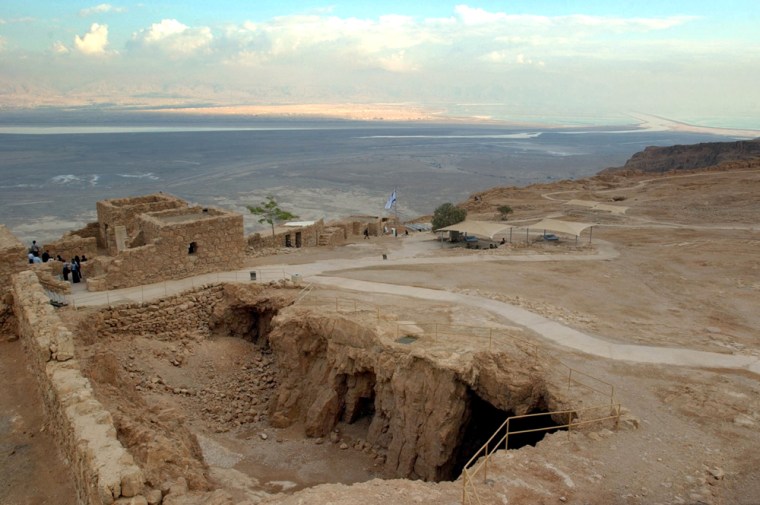After withstanding a Roman assault two millennia ago, the Masada desert mountain — where Jewish rebels chose suicide over capture — has begun crumbling under a harsh attack by Mother Nature.
The Judean mountain promontory overlooking the Dead Sea is the site where a last group of holdouts sought refuge from Roman legions who had already destroyed the biblical Jewish Temple in Jerusalem.
Torrential rains last winter caused serious damage to Masada's limestone facade. On Sunday, Prime Minister Ariel Sharon's Cabinet asked a ministerial team to come up with a plan for preserving the historic site.
The committee is to report to the Cabinet every year on the condition of the Judean Desert mountain, which was declared a UNESCO heritage site in 2002.
Masada and the ancient Mediterranean port city of Acre in northern Israel were the first two Israeli sites to be added to the UNESCO list.
A spokesman for Israel's National Parks Authority said unusually heavy winter rains had undermined the integrity of Masada's limestone facade, but temporary repair work had shored it up. He said permanent repairs would be carried out in the near future, at a cost of about $2.2 million.
Masada fortress still symbolic
In A.D. 73, Roman soldiers surrounded the Masada fortress, where some 900 Jews, rebelling against Roman rule, were holed up. The massive earth ramp the Romans constructed to get a battering ram in striking distance of the walls is still clearly visible. The Jewish historian Flavius Josephus wrote that 10 of the surviving rebels decided on suicide rather than facing death or slavery.
Half a century ago, Jewish archeologists rediscovered the site, which had for a time been home to Byzantine monks before being deserted. There is still an ancient church on the site.
The symbolism of Masada still looms large in Israel. Soldiers come to the flattened hilltop fortress at the start of their military training to swear a pledge of allegiance. Boys celebrate coming-of-age rituals there.
This week, Masada even became part of a present-day battle.
On Tuesday, dozens of employees of the nearby towns of Arad and Dimona, led by their mayors, plan to hole up on the top of the hill until the government meets their financial demands.
